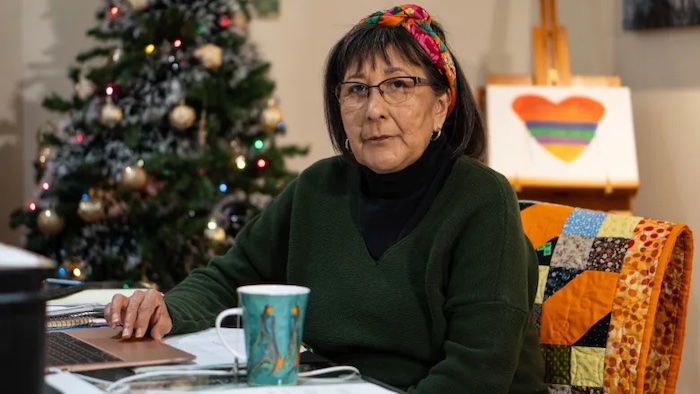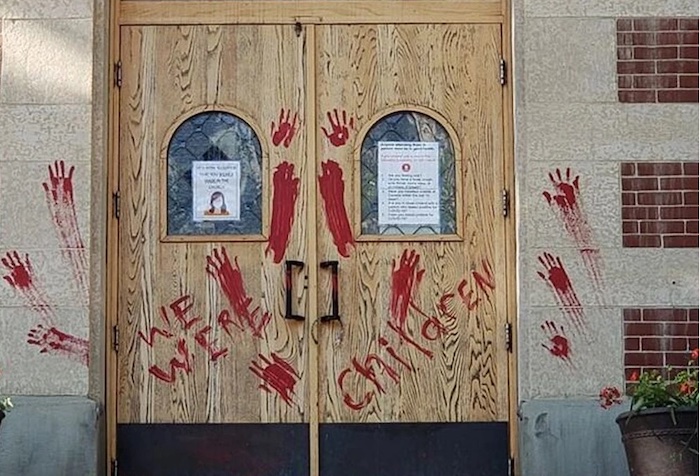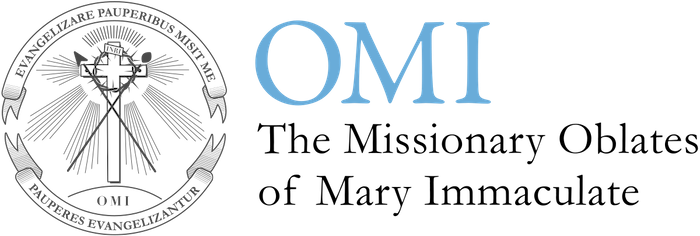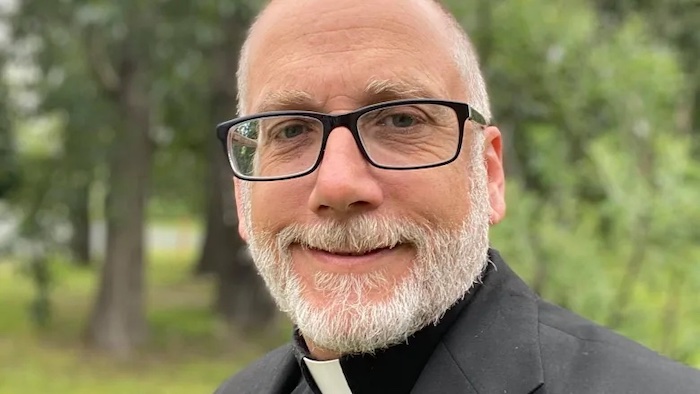First time a Canadian researcher granted access to Oblates archives in Rome
The National Centre for Truth and Reconciliation (NCTR) plans to begin a search as soon as next month in the archives of a Roman Catholic order that ran 48 residential schools in Canada, including the institution in Kamloops, B.C., where last year more than 200 unmarked graves were discovered.
A Catholic entity that ran residential schools in Canada will soon open its archive in Rome, bringing some hope to survivors searching for records.
The National Centre for Truth and Reconciliation (NCTR) plans to begin a search as soon as next month in the archives of a Roman Catholic order that ran 48 residential schools in Canada, including the institution in Kamloops, B.C., where last year more than 200 unmarked graves were discovered.
Raymond Frogner, head of archives for the NCTR, will be visiting the Rome archives of the Missionary Oblates of Mary Immaculate to review and digitize residential school-related records.
It’s the first time any Canadian researcher has been granted access to the Oblate General Archives.
“It’s quite a wild card,” Frogner said. “We’ve been told there’s correspondence there and other documentation, but we are still a bit in the dark of what is held there.”
He said the NCTR is still negotiating with the Oblates to access the personnel files of priests and residential school staff. He said the Oblates are seeking restrictions around records from those members who are still alive.
Frogner said the long-term goal is to have everything open for research, access and use.
The Oblates have so far provided more than 40,000 files to the NCTR through the Truth and Reconciliation Commission, but the discovery in May 2021 on the grounds of the former Kamloops Indian Residential School led the order to seek this agreement, said Rev. Ken Thorson, leader of the Oblates in Canada.

“The Oblates have been moved by the events of the last year,” said Thorson, who is based in Ottawa.
“It was my feeling that we should ensure that every document that might be related to the residential school history should be made available.”
‘These documents do not belong in Rome’
Thorson acknowledged that the Oblates have a significant contribution to make to ensure the truth of the residential school experience is known and to facilitate a deeper understanding of this history as part of the ongoing healing process.
“This is the most important work that I’ve been given to do as an Oblate leader,” he said.
Thorson said the Oblate archives in Rome, which are separate from the Vatican archives, could contain letters from missionaries to religious leaders about their work.
Residential school survivor Evelyn Korkmaz said she is hopeful the agreement between the NCTR and the Oblates will reveal more information about St. Anne’s Residential School in Fort Albany, Ont., which the Oblates ran and she attended from 1969 to 1972.
“It’s time to open that door of horrors and take a look at what’s inside,” Korkmaz said.
“These documents do not belong in Rome. They belong here, in Canada.”
Records can’t have any restrictions, survivor says
Korkmaz says she wants to make sure other Catholic entities, including the Vatican, release all residential school records in their possession, adding that there should be no restrictions on the files.
“We need to know information on priests and brothers or nuns who have passed away,” Korkmaz said.
“But we also need to know of the priests or nuns or cardinals, whatever, that are still alive today because those ones are the ones that are continuing to do damage.”
Frogner said that records still held by the Oblates in Rome are vital to the work of the NCTR, which was created to be the main repository for the documented history of the residential school system in Canada.
More documents identified in Canada
Frogner said the NCTR has already identified Oblate records held by its archives in Canada, including more than 1,000 boxes held in Alberta. The centre is working to access those records through a separate research agreement with the Catholic entity.
More than 1,000 other files are located at the Société historique de Saint-Boniface in northern Manitoba, while other documentation is held at the Royal B.C. Museum in Victoria and the Roman Catholic Archdiocese of Vancouver, he said.
Before Frogner goes to Rome, an Indigenous delegation from Canada is heading to the Vatican for meetings with Pope Francis.

The delegates are expected to appeal for an official apology from the Pope for the Church’s role in running residential schools and press for the disclosure of more records, which they have discussed with the NCTR.
Korkmaz said she would acknowledge a papal apology, but it wouldn’t mean much to her because it would be “hollow words.”
“I’m more concerned about the documentation than an apology that he’s forced to say,” Korkmaz said.
“What would mean more to me is bringing those documents back to Canada.”
Complete Article ↪HERE↩!
Catholic order says it will open up residential school records in Rome — but survivor remains skeptical
Missionary Oblates of Mary Immaculate operated 48 residential schools in Canada

A Catholic order that ran residential schools across Canada now says it will open up its archives in Rome to the National Centre for Truth and Reconciliation (NCTR).
This is welcome news for survivors, many of whom have long called for the Missionary Oblates of Mary Immaculate and other Catholic entities to make their records available.
Survivor Evelyn Korkmaz says she remains skeptical, though.
“The devil is in the details. We have to know the details before anybody agrees to releasing these documents,” said Korkmaz, a survivor of abuse at St. Anne’s Indian Residential School in Fort Albany, Ont.
She wants access to her own student records, as well as journals and other archives, so she can trace her experience at the school.
“We’ve been disappointed in the past. So I don’t want to get my hopes up and get these documents and find out that they were redacted,” said Korkmaz.
A joint statement between the NCTR and the Oblates, released on Tuesday, said the religious order will grant “full access to critical residential school records.”
The Oblates operated 48 residential schools in Canada, including the Marieval Indian Residential School in Cowessess First Nation in Saskatchewan and the Kamloops Indian Residential School in Tk’emlúps te Secwépemc First Nation in B.C., where unmarked graves have recently been identified.

The centre’s executive director, Stephanie Scott, said she’s had recent discussions with Oblate Father Ken Thorson about access to the records and he offered an opportunity to “investigate their archives, find some research, see what’s available.”
“There could have been letters written that ended up in Rome that are there, so we’re going to find out what truly exists,” said Scott.
Those records belong to Canada. They belong to the people first and foremost.
– Brenda Macdougall, University of Ottawa
The Oblate leadership is now seeking the most appropriate way to figure out what documents may exist, and to ensure documents related to Oblate involvement in residential schools might be made available, Thorson told CBC in an email.
He said documents will not be redacted and “any records from residential schools found in this process would be returned to Canada.”
“We are looking to the [centre] for guidance in the development of an appropriate third-party process to facilitate this preliminary work. We anticipate being able to share more about this in the near future,” said Thorson.
No longer in this country
In November, CBC reported that researchers in Ottawa had uncovered new evidence to suggest some archival records relating to residential schools in Canada are now only available in Rome.
“The records that we had looked at here are no longer in this country,” said Brenda Macdougall, a professor and research chair in Métis family and community traditions at the University of Ottawa.
She and a research colleague made the discovery when updating an academic article.
“Those records belong to Canada. They belong to the people first and foremost. … They have to come back through subpoena or the Church. The Pope himself can suspend canonical law and return them,” Macdougall told CBC in November.
The National Centre for Truth and Reconciliation already holds close to 7,000 survivor statements and more than five million records, said Scott.
She said there’s a commitment to finding all residential school records “no matter where they are located or how long it takes.”
Complete Article ↪HERE↩!
Searching for the Lost Graves of Indigenous Children in Canada
For more than a century, Indigenous children in Canada were forced to attend residential schools, where many endured abuse. Thousands were never seen again and survivors were long ignored. We followed a team of archaeologists who came to the Muskowekwan First Nation to search for the graves of these lost children.

Quebec Superior Court allows class-action against Catholic missionary group for sexual assault
The lawsuit states that the abuse committed on more than 200 victims at the hands of Catholic priests involved children aged eight to 10 years old.

The Superior Court of Quebec has authorized a class-action lawsuit against a Catholic Church missionary congregation for sexual abuse committed on more than 200 victims, many of whom were children, from 1940 onwards.
The lawsuit request was first filed in 2018 regarding sexual assaults allegedly committed in Basse-Côte-Nord (Lower North Shore), Que., by Father Alexis Joveneau — who died over 25 years ago — and other religious members of the congregation.
On Tuesday, the Superior Court authorized the suit following a hearing that took place on Nov. 1, which saw many of the victims from different communities attend by videoconference.
The case states that the Catholic group, the Missionary Oblates of Mary Immaculate — founded by a French Catholic priest in the south of France in 1816 — was “very present” in many Innu, Atikamekw, Anishinaabe, Cree, Inuit and non-native communities of Quebec.
The lead plaintiff in the case is Noëlla Mark, who is now in her early 60s and lives in Unamen Shipu, a small Innu First Nations community in the province.
More than 200 alleged victims, both men and women, have since contacted the law firm representing the plaintiff to sign on to the lawsuit.
The suit states that the religious congregation is directly responsible for the sexual assaults committed by its members, adding that the congregation must have known that Father Alexis Joveneau and other priests sexually abused vulnerable people under their control.
Lawyers representing the plaintiffs said Wednesday that more than 30 missionaries have been identified as suspected perpetrators.
The Superior Court’s judgement authorizing the class-action highlights five main priests in the case: Fathers Alexis Joveneau, Omer Provencher, Edmond Brouillard, Raynald Couture and Edouard Meilleur.
Lawyer Alain Arsenault said in 2018 that the abuse involved children aged eight to 10 years old, and that it went on for years.
Anyone who believes they are a victim of abuse by the Missionary Oblates of Mary Immaculate congregation is asked to contact lawyers at Arsenault-Dufresne-Wee, the firm handling the case.
Complete Article ↪HERE↩!
Be vulnerable and examine Catholic Church’s residential school past, Manitoba pastor urges
Parishioners, Flin Flon pastor say more work to be done for reconciliation after discovery of unmarked graves

By Renée Lilley
Some Manitoba Catholics are calling on church leadership to atone for their wrongs in light of the discovery of unmarked graves on the sites of some former Indian Residential Schools in Canada.
Father Paul Bringleson, the pastor of St. Ann’s Roman Catholic Church in Flin Flon, thinks the Roman Catholic Church needs to take a back seat and truly listen to survivors.
“Take off your robes, your shoes, and your rings and your crosses. Sit yourself in a chair. And listen,” he said in a sermon on June 6, days after the Tk’emlúps te Secwépemc First Nation reported the discovery of what are believed to be 215 unmarked graves at the former Kamloops Indian Residential School.
“It is not for us to tell Indigenous Peoples, ‘it’s time to move on.’ You don’t tell a victim when their suffering is over. You sit with that pain.”
Bringleson’s sermon drew national attention when it was published in full by Maclean’s magazine.
In the weeks following his sermon, other First Nations announced they too had found what are believed to unmarked graves, including 751 on Cowessess First Nation in Saskatchewan and another 182 near St. Eugene’s Mission School outside Cranbrook, B.C.
Bringleson says Catholics should be able to put questions to the church’s leadership and get decent answers. Instead, leaders are often bogged down in other issues like gay marriage, he says.
“If two men want to get married in Canada, every bishop in the country is writing a letter about it. But these graves being uncovered, and our role in it, which needs to be examined and looked at, it’s not a quick fix,” he said in an interview with CBC Manitoba’s Information Radio last Monday.
“Nobody wants to remain vulnerable. Especially in the church, the clergy has safety in holy orders. It makes it very difficult to want to be vulnerable with people. It’s not our first instinct, and yet that’s where we need to be.”

There have been calls for the Catholic Church to formally apologize to Indigenous Canadians for the abuse committed through the residential school system, which was run by the federal government and contracted out to Christian denominations. More than 60 per cent of the schools were run by the Roman Catholic Church.
The United, Presbyterian and Anglican churches have apologized for their roles in the residential school system, as has the Canadian government, which has offered compensation.
There have been some localized apologies from individual Catholic orders. Pope Francis will meet with Indigenous leaders later this year and expressed his “pain” after the discovery of the graves in Kamloops.
However, neither the Pope nor the Vatican have offered an official apology.
‘This, I cannot condone’: parishoner
Linda Ducharme, a Métis Catholic, said after the discovery of the unmarked graves, she won’t go back to her Catholic church in St. Ambroise, Man., until the Pope apologizes.
“I refuse to support the Catholic church until the church apologizes for its part and asks for forgiveness,” she said.
“I’m a devout Christian. I turned to the Catholic church because it’s the only one here. But this, I cannot condone.”
Ducharme says she cried for days, not only for the children forced to attend residential school children, but also for their parents. Neither had a voice, she says.
“They took those little kids, put them in these enclosed spaces, like pig farming and chicken farming today. All crowded in there, not properly fed or cared for.
“A lot of them probably died from disease too, but the way they treated the bodies — they didn’t let the parents know, they just wrapped them in a blanket and buried them. That is so disrespectful and so wrong.”
That feeling was evident on Canada Day — a day marked by mourning for many, but also visible anger, including the toppling of statues at the Manitoba Legislature grounds in Winnipeg.
Some Catholic churches across the country have also been vandalized or burned.
Ducharme says that’s not the way to accomplish anything.
“I do not agree with the burning of the churches. That doesn’t help anybody. It doesn’t solve the problem. We know you’re mad, but going out and being destructive doesn’t solve anything.”
However, Ducharme says she has lost her sense of patriotism for the usually celebratory holiday.
“It sure doesn’t make you proud to be a Canadian. And I used to be so proud to be Canadian,” she said.
This year, “even if I wasn’t busy moving my daughter, we wouldn’t have celebrated. My heart was with them.”
Gordon Elijah Mackintosh, a practising Catholic in Winnipeg, also hopes the church will recognize its wrongs.

“I was getting really upset over the news coming out. I’ve been going to church my whole life, and I just felt like I needed to say something,” said Mackintosh, 31.
He’s disappointed in the silence from many in the Catholic community.
“Considering one of the main sacraments is reconciliation and being forgiven, I think they really need to show the Indigenous community and really everyone that they mean what they say,” he said.
Truth, acceptance necessary for change
In terms of reconciliation, the churches and government have a lot of work to do, says Sean Carleton, an assistant professor of history and Indigenous studies at the University of Manitoba.
Churches should be transparent with historical records that many churches held back, he says, and making all of them available immediately is a good first step.
“One thing that is very clear, coming out of the TRC [Truth and Reconciliation Commission] — if Canadians are really serious about reconciliation, we have to have truth first. Truth before reconciliation.”
In terms of Canada’s role in the residential school system, Carleton stresses the need for the entire country to face the effects of its history.

“Canadians are having a hard time and are struggling with the fact that it’s not a historical problem. I don’t think people really understand the intergenerational effects this really has for Indigenous people today,” he said.
“There are pockets of multiculturalism and tolerance, but there is also ongoing oppression, genocide. And that’s something that is coming to the fore.”
Complete Article ↪HERE↩!
